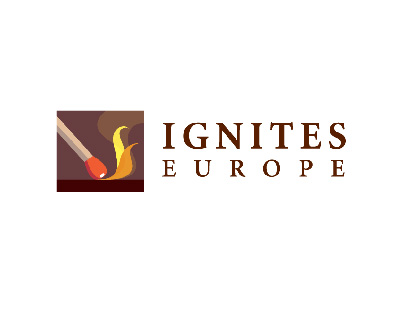Invesco and Fidelity bitcoin products struggle against smaller rivals
By Anna Devine 11 July 2022

A replica bitcoin mine at the CoinDesk 2022 Consensus Festival in the US. (Credit: Bloomberg)
Invesco and Fidelity International are seeing slower crypto sales than some smaller rivals, as experts warn that brand is “not a guarantee to success”.
Invesco, with $1.5btn (€1.47tn) in assets under management, launched the Physical Bitcoin exchange traded product in November last year, making it one of the first large traditional asset managers to offer investors access to the controversial cryptocurrency market.
The Invesco product started strongly raising some $170m in the first few days following the launch, but has failed to attract many investors since.
The ETP has gathered around $500,000 in net inflows in the year to June, according to ETFbook and Blackwater Search and Advisory, an exchange traded fund research specialist.
Due to a wider sell-off in the cryptocurrency market, the value of the fund has dropped to less than $57m.
Fidelity International, the $768bn asset manager that launched the Fidelity Physical Bitcoin ETP in March this year, similarly has failed to attract many new investors, posting a small number of net outflows in the months to June.
Meanwhile smaller rivals 21Shares, with around $818m in European assets, and Coinshares have attracted $127m and $98m respectively during the first six months. VanEck and WisdomTree have registered $65m and $38m respectively.
Some of the market’s more established players, XBT Provider, owned by Coinshares, and ETC Group, have suffered outflows of $379m and $131m respectively.
Distribution is key
Michael O’Riordan, founder of Blackwater Search and Advisory, says some digital assets firms may be more successful at raising assets than others because of distribution.
He says 21Shares and Coinshares have dedicated sales teams “fully focused on selling crypto and crypto only”, while others have a wider range of products.
Mr O’Riordan says he would not count on either Invesco or Fidelity benefiting from being first movers at the larger end of the asset management market.
Larger firms are challenged by understanding the space and “setting up their distribution strategy in the most effective way possible”, he says.
Hector McNeil, co-founder of HanETF, an ETF platform, believes Invesco’s product will fail to gain traction.
He says the structure is not that different from any other product in the market and while the brand will “count for something […] it’s certainly not a guarantee to success”.
“I think they are too late […], they’re not really bringing anything unique and they’re probably the seventh or eighth product to market so by that point it’s difficult to beat the liquidity and the traction of other products,” he says.
Only tech native
Hany Rashwan, chief executive officer of digital assets firm 21Shares, says a major selling point for his firm is that it is the “only tech native” in the market.
Meanwhile, Jason Guthrie, head of product, digital assets at WisdomTree, says some of the biggest impediments to success at larger firms are “institutional inertia” and a “buy-in” for the “controversial asset class”.
He suggests that many are worried about reputational risk.
Ralph Williams, associate director at Broadridge, says the first half of 2022 was “not a great period to build up an asset base”.
“The wide-ranging switch to risk-off has hit all kinds of funds, but is amplified in crypto, an asset class known for wild price swings,” he says.
He believes that Invesco still stands to gain over the long term.
“This launch confers a real first-mover advantage on Invesco,” he says.
Bitcoin in the future
Matt Tagliani, head of Europe, the Middle East and Africa for ETF product and sales strategy at Invesco, says “the decline in crypto prices has kept investors on the sidelines” for now.
Investors are “interested” but “cautious” and “need to do their homework on the structure”, he adds.
Mr Tagliani says Invesco is “somewhat limited in the marketing it can do”, especially in the UK, where it can only target sophisticated institutional clients and has been “very careful” not to engage media outlets that target a retail investor base.
“In bringing the product to market, our goal was not to be first to market or to time the launch based on market movements, but rather to create a robust platform that provided institutional-grade features with high-quality service partners,” he says.
“We’re confident in the suitability of our ETP for those institutional investors who wish to gain exposure to bitcoin in the future.”
Fidelity did not respond to a request for comment.
As previously reported, digital assets firms remain bullish about the market prospects, saying the downturn is the time to launch more products.
Fidelity Investments CEO Abigail Johnson recently stated the firm would not be pulling back from its commitment to the space in a LinkedIn post titled The time to double down on digital assets.
Recent research from Cerulli shows that regulatory and environmental concerns are weighing on investor sentiment and limiting wider adoption, notably in the institutional space.

